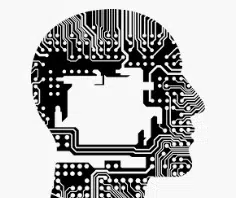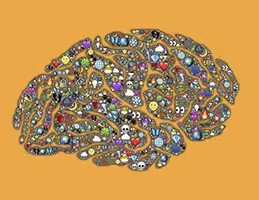 The Latin word cognitio came to Spanish as cognition . This is what the act and result of knowing are called: knowing, understanding.
The Latin word cognitio came to Spanish as cognition . This is what the act and result of knowing are called: knowing, understanding.
Cognition, therefore, is linked to knowledge . It is the understanding that is reached by using intellectual abilities, recording the qualities and characteristics of something, establishing relationships, discovering similarities and differences with other elements, etc.
It can be stated that cognition is a faculty that living beings have for processing information . This information, in turn, is perceived through the senses .
Human beings are the species with the greatest capacity for cognition. People decide how and when to pay attention, use memory, learn from experience, and reason when making decisions.
In any case, cognition is also present in animals and, according to certain studies, in plants . We even talk about cognition to refer to mechanisms that develop non-biological (that is, artificial) entities .
Cognition, in short, starts when an individual captures some aspect of reality with their senses and then begins a series of mental processes to assimilate, link, integrate, modify, order and classify the information. In this way it produces knowledge .
Cognition can be understood from different points of view, and in fact its interpretation has changed throughout history. Broadly speaking, however, we can say that its structure brings together the following aspects:
* observation : it takes place when we detect the features of one or more elements and assimilate them, especially through the sense of sight but also making use of the others. In more precise terms, it is about seeing and hearing the object of study;
* identification of variables : precisely notice the parts that make up the phenomenon that we wish to study;
* comparison : it is a fundamental aspect to define each phenomenon more precisely;
* relationship : arises as a consequence of the previous step, leaving aside the differences instead of the links that may exist between the two;
* ordering : cognition could not be sustained if it did not order the objects in the mind using various criteria;
* hierarchical classification : a relationship is established between the phenomena studied that allows them to be distinguished according to their degree of importance.
There are various sciences and disciplines that study cognition. Among them cognitive psychology , also known as cognitivism , which analyzes how these processes are carried out.
 Cognitive psychology, in this framework, aims to unravel how human beings acquire information through the senses and synthesize, transform, store and use it. It also investigates the impact of cognition on the actions of subjects.
Cognitive psychology, in this framework, aims to unravel how human beings acquire information through the senses and synthesize, transform, store and use it. It also investigates the impact of cognition on the actions of subjects.
The Austrian physicist Fritjof Capra wrote in his book titled The Web of Life , the criteria that according to the anthropologist Gregory Bateson are essential for the mental process and contrasted them with the theory of the philosopher Humberto Maturana . From their work, the following list of six fundamental points emerges:
* the mind is a set of components or parts that interact with each other;
* this relationship of interaction that the different parts maintain takes place because of the difference;
* to carry out the mental process, the use of collateral energy is necessary;
* another requirement for this process to take place is the existence of circular chains of determination;
* the effects that the difference has must be understood as a transformation of the events that have taken place before them;
* From describing and classifying these processes in which events are transformed, a series of immanent logical prototypes can be noticed that are ordered hierarchically.
